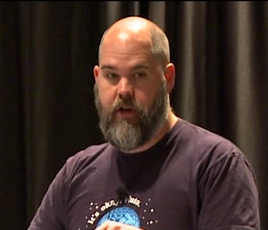CppCon 2014 Lock-Free Programming (or, Juggling Razor Blades), Part II--Herb Sutter
 While we wait for CppCon 2015 in September, we’re featuring videos of some of the 100+ talks from CppCon 2014. Here is today’s feature:
While we wait for CppCon 2015 in September, we’re featuring videos of some of the 100+ talks from CppCon 2014. Here is today’s feature:
Lock-Free Programming (or, Juggling Razor Blades), Part II
by Herb Sutter
Summary of the talk:
Example-driven talk on how to design and write lock-free algorithms and data structures using C++ atomic -- something that can look deceptively simple, but contains very deep topics. (Important note: This is not the same as my "atomic Weapons" talk; that talk was about the "what they are and why" of the C++ memory model and atomics, and did not cover how to actually use atomics to implement highly concurrent algorithms and data structures.)

 While we wait for CppCon 2015 in September, we’re featuring videos of some of the 100+ talks from CppCon 2014. Here is today’s feature:
While we wait for CppCon 2015 in September, we’re featuring videos of some of the 100+ talks from CppCon 2014. Here is today’s feature: While we wait for CppCon 2015 in September, we’re featuring videos of some of the 100+ talks from CppCon 2014. Here is today’s feature:
While we wait for CppCon 2015 in September, we’re featuring videos of some of the 100+ talks from CppCon 2014. Here is today’s feature: While we wait for CppCon 2015 in September, we’re featuring videos of some of the 100+ talks from CppCon 2014. Here is today’s feature:
While we wait for CppCon 2015 in September, we’re featuring videos of some of the 100+ talks from CppCon 2014. Here is today’s feature: